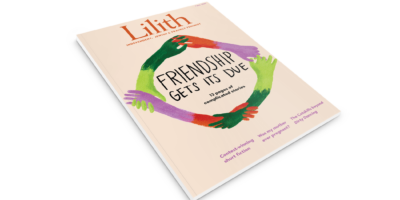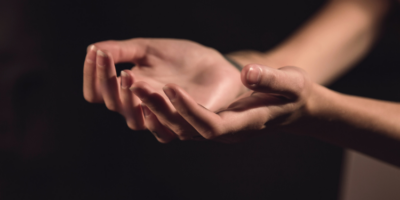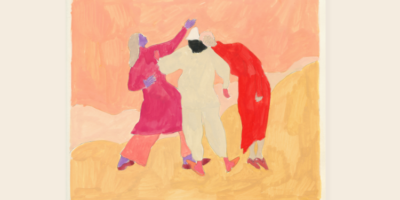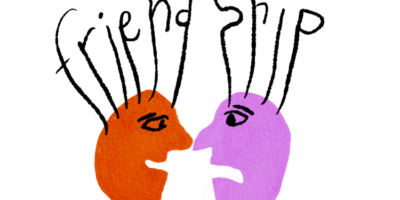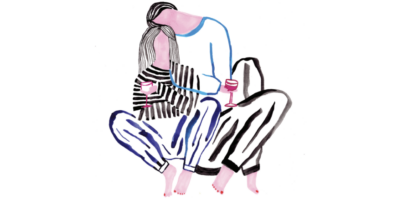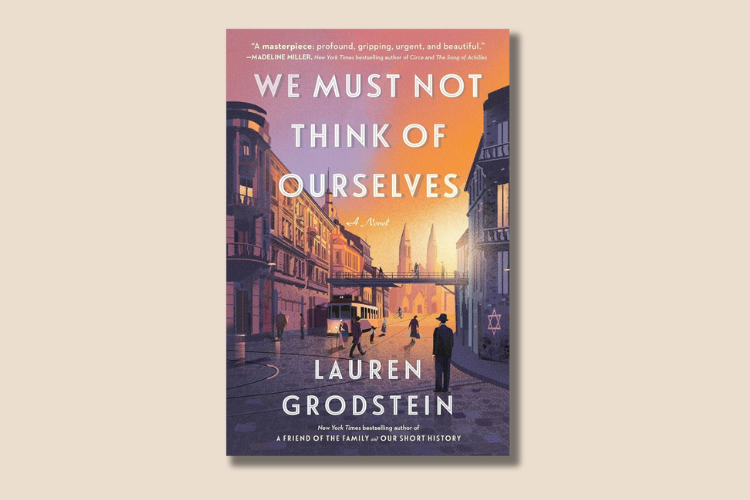
A Novel of Life in the Warsaw Ghetto
In her crucial, compelling, and important new novel, We Must Not Think of Ourselves (Algonquin, $27.00), Lauren Grodstein (Our Short History and A Friend of the Family) takes us into the period from the 1940 creation of the Warsaw Ghettos to the mass deportation into the camps, in which daily horrors ramp up.
Adam Paskow is a foreign language teacher at the local lyceum where he teaches the wealthier children of Warsaw. His Polish Catholic wife has recently died, tragically young, and Adam is grieving.
His father-in-law visits with a proposal: he will take over Adam’s sun-filled, book-filled, memory-laden apartment and in return he will find Adam a good apartment in the newly created Warsaw ghetto. Adam agrees but when he arrives, he finds to his shock and horror two other families. Eleven people total in a tiny one-bedroom apartment.
The novel begins with a mysterious request. A man named Emanuel Ringelbaum has come to the basement of a bombed-out cinema where Adam teaches the children of the ghetto to ask if Adam will join a group of archivists who call themselves Oneg Shabbat. They are tasked with interviewing ordinary Jews in the ghetto. “All the details…even if they seem insignificant….You are a camera and a Dictaphone, both,” Ringelbaum tells him. Adam will be paid a small sum of money and agrees to meet regularly with other members of the group. As time in the ghetto unfolds, the interviews become the scaffolding from which the novel hangs. As Ringelbaum later says, “We must continue to concentrate on the things we can do, the stories we can record, the history we can record. I know this is a difficult time for all of us, but we need to continue to do the work that will outlast this moment in history.”
Adam is a dreamer, an optimist and an introvert. He’d prefer to live in his books. Moby Dick, Huck Finn, and Gone with the Wind. He prefers to vanish into his memories of his wife. He works hard to bring optimism to the children who still attend his classes. And while he has no books or supplies, he recites poems from memory, careful to select happier poems he hopes will give comfort. Yet he finds there is no literature in the world that can comfort in this hell the Nazis, with help from the local population, have inflicted. Grimmest reality keeps butting in. Food is scarcer and scarcer. Disease is rampant. The guards become more and more brutal. The children resort to dangerous missions outside the ghetto, smuggling food and goods. One teenage girl prostitutes herself to the Nazis. Adam thinks, “These children, raised in fire, will be some of the finest Jews who have ever lived. They will be the strongest and the toughest and the smartest. They will be the most proud and will have the most to be proud of.”
The novel begins with a mysterious request.
The tension of the novel comes from what we in the future know; the allies will not in fact liberate the ghetto and that the worst is yet to come. But the ghetto inhabitants believe that the Americans will join the fight, that the Russians will weaken the Nazis, that they will walk out of the Ghetto free men and women. Grodstein uses this tension to masterful effect.
Each time the Jews reach their breaking point, we know, even if they don’t, that more horrors are coming. The Nazis are that deranged, that cruel, that blood-thirsty. The Polish are that callous, that greedy, that indifferent. And while at times the novel moves slowly—delaying the action—it also gives the reader time to sink into the horror, waiting for the next terrible thing. And when Adam is finally forced out of his books and poetry and memories and into action, he must act fast. He’s fallen in love with a married woman who shares the apartment along with her husband and children. He’s in possession of his late wife’s necklace, worth a small fortune, and it might be the object that allows his escape or it might be squandered.
The reader knows not everyone will survive the ghetto. The reader knows almost no Polish Jews will survive the camp, and so we make a choice. As Viktor Frankl said, The best of us don’t survive. This gives the deaths meaning. It’s one thing to read Frankl’s quote and it’s another to have it so deftly drawn in literature, as Grodstein has done.
Bethany Ball lives in New York. She is at work on her third novel.

